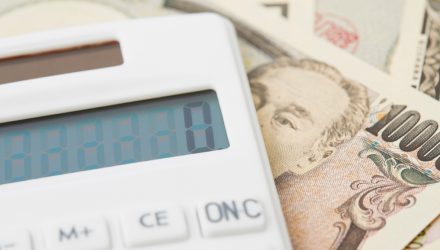The vaccine rally is giving global markets around the world a swift kick in the pants to close out an odd 2020 year. While year-end sell-offs could be looming in safe haven currencies like the Japanese yen, it’s important to have a hedging component in place via funds like the Xtrackers MSCI Japan Hedged Equity ETF (DBJP).
DBJP seeks investment results that correspond generally to the performance of the MSCI Japan US Dollar Hedged Index. The fund, using a “passive” or indexing investment approach, seeks investment results that correspond generally to the performance, of the underlying index, which is designed to track the performance of the Japanese equity market while mitigating exposure to fluctuations between the value of the U.S. dollar and the Japanese yen.
DBJP will invest at least 80% of its total assets in component securities (including depositary receipts in respect of such securities) of the underlying index. DBJP’s expense ratio comes in at 0.46%.
DBJP had a great 2019 with a gain of about 20% according to Morningstar performance numbers. Even in a forgettable 2020, the fund managed to eke out an 8% again amid COVID-19 madness.
Looking at its relative strength index (RSI), the fund is already in oversold territory, which means year-end selling could be ahead. This is where having that currency hedging component provides a safety net should Japanese equity selling take place amid rising coronavirus cases.
The yen was one of the safe haven currencies amid the pandemic sell-offs earlier this year. Currency investors saw it as the gold equivalent of foreign exchange markets, but there are signs of selling that could be ahead.
“Safe-haven assets such as the yen came under pressure from the positive news of the first promising COVID-19 vaccine candidates,” an FX Street article noted. “This has increased the likelihood of an end to the pandemic in 2021, with positive implications for the global economic outlook. In this environment, demand for safe-haven assets such as the yen typically suffers. We therefore expect the yen to continue its longer-term downtrend against the euro (which began in June) in the coming months. In the event of setbacks in the fight against the pandemic, the yen could temporarily strengthen against the euro.”
For more news and information, visit the Smart Beta Channel.

